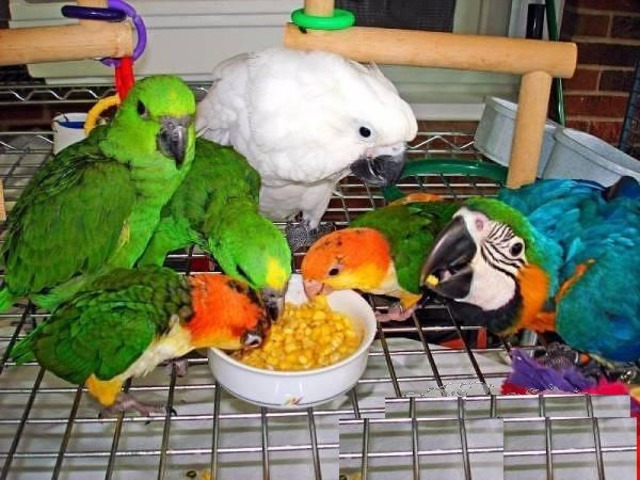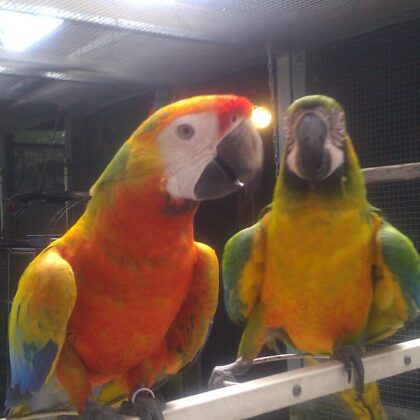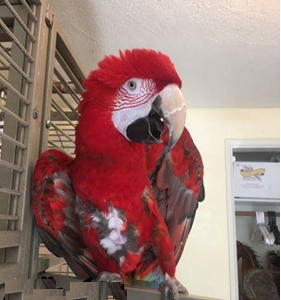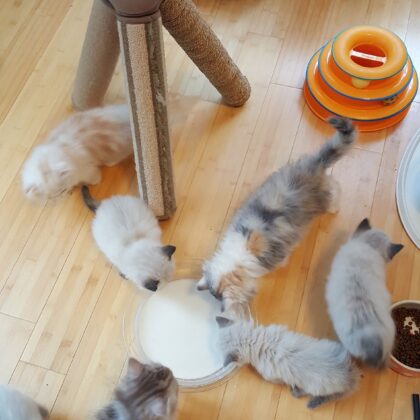Buy Ringneck Parrot
Buy Ringneck Parrot have been held in admiration and esteem since ancient times. They are a large parakeet, sought after for the superiority in their form and beauty, their ability to speak, their intelligence and trainability, and because they are easy to breed. Ringneck parrot for sale UK. The Indian Ringneck Parakeet has been a long time favorite for bird lovers! Buy green ringneck parrot. Ring necked parakeet for sale.
Buy green ringneck parrot
NATIVE TO:
Native to Asia and Africa; live in forests or dry climates. Ringneck parrot for sale UK. Ring-necks are one of a few birds to adapt well to urban development and deforestation. Ring-necks HAVE established non-native colonies in places such as California, Florida and the United Kingdom. Quite possibly the first parrot ever kept as a pet, they were considered sacred in India because of their ability to mimic human speech. Buy Ringneck Parrot.
LIFE SPAN:
25 – 35 years
AVERAGE ADULT SIZE:
about 16 inches (including tail feathers)
MALE OR FEMALE?:
Ring-necks are sexually dimorphic, which means males and females are visually different. At maturity, males have three bands of color (rings) around their necks; have bright red beaks and black markings on the face. Females do not have the face markings or neck rings, although some have a faint band around the neck. Both males and females are equally good talkers. Ringneck parrot for sale UK.
PHYSICAL CHARACTERISTICS:
Wild ring-necks are green with blue undertones. In the pet trade, they are now available in a variety of colors ranging from greens to blues, yellows and albino. Ring-necks are slender bodied birds with smooth feathers and a parakeet-like beak that is smooth and shiny. Ring-necks are very good at “pinning” the eyes (purposely making the pupil larger or smaller) when excited or angry – but mostly when excited. Both sexes have long, 6-7 inch tails that are comprised of 12 feathers. Ringneck parrot for sale UK .
SIGNS OF A HEALTHY BIRD:
A healthy bird should be perky, active and alert with bright, clear eyes, cere and nares (nostrils). You should observe your bird eating and drinking throughout the day, although they may prefer to eat when you are eating, as they are flock oriented animals. Your bird should appear well groomed; with neat, bright feathers. Ringneck parrot for sale UK. The feathers should be smoothed to the body – not fluffed. The feet and legs should be smooth and free of lumps and rough scales. Birds vocalize regularly with chirps, clicks, whistles and learned words. They enjoy communicating and mimicking. Your bird should be interested in communicating, but may be shy or intimidated around new people or in new environments. A healthy bird is confident and inquisitive, although cautious and aware as well. Buy Ringneck Parrot .
NORMAL BEHAVIOR AND INTERACTION:
Birds are flock-oriented animals, and they do well with other birds in the home to communicate with. However, you and your family become part of your bird’s flock as well. It is wonderful to have more than one bird (not necessarily in the same cage), but it is not absolutely necessary for a parrot species to thrive in the home. Parrots are extremely intelligent animals. Despite their tiny heads and brains, they have great ability to comprehend, “speak” in context, and interact sensibly with their human flocks. As a parrot keeper, it is important to interact and work with your bright pet on a regular basis. Ringneck parrot for sale UK. Because of their intelligence, they are quite needy of this interaction. A neglected parrot often becomes a “problem bird” and may begin showing their frustration with behavior such as biting and screaming. These behaviors are not necessarily irreversible. Every bird is worth the effort of proper training. **Do not purchase or adopt a parrot solely for their ability to “speak” and mimic. Every bird is different, and there is no guarantee that your new bird will possess these talents. However, EVERY bird has the full capacity to unconditionally love and to steal your heart with their own personal special powers, and they deserve this same love and care in return.
Some parrots often get labeled as “one person birds”. Although this may sometimes seem to be the case, many members of the household – with work – can have a good relationship with the family bird. Birds do mate for life in the wild, so it is natural for them to do the same in the home. Birds can also read people very well, so those who interact with them with care and confidence will often receive more “respect” in return! If everyone in the “flock” equally showers your feathery friend with attention, there is a greater chance that they will all benefit from a close relationship with him or her. Go slowly with any new pet, but especially with parrots. Being intelligent prey animals, they can be very suspicious and careful, but can also be won over with enough continued patience. Prove to them that they can trust you and you have a companion for life! Every parrot, even within the same species, has his or her own personality. Some parrots are very bold and interactive, and some are subdued and shy.
Ringneck parrot for sale UK
The more you work with your pet, the more comfortable s/he will become and the more his or her own personality will emerge. Adopt your parrot ready to accept whatever he or she may become – just like adopting a child. Remember that acquiring a parrot is a long-term commitment. Depending upon the species, your parrot may live between 15 to 60 years! Pay close attention to your parrot’s body language. Ruffled feathers can mean an aggravated parrot. Also, a parrot has the ability to “pin” his eyes – make his pupils smaller on purpose – when angry or excited. An aggravated, angry or threatened parrot will attempt to look larger and more intimidating by puffing up his/her feathers, crouching lower than normal and rocking back and forth on the feet a bit. Buy Ringneck Parrot.
Respect this posture and give your parrot some space. Parrots have extremely strong, dexterous feet. Many parrots enjoy hanging and swinging upside-down in their cage. They also have the ability to manipulate very little things with their seemingly giant feet, such as tiny seeds or small toys. As you and your parrot get to know each other, you will begin to know what her or she likes and doesn’t like. He or she will adopt favorite foods, toys, activities, music and even television shows. Your parrot may learn to hear you coming home and greet you with happy chirps as you come in the door. A relationship with a parrot can be an extremely rewarding and wonderful experience, one some people never expect from a bird!
Ringnecks are delightful little birds with a seemingly unending supply of energy. They can learn to speak very well and have high, sweet, clear voices. They are very intelligent birds and can learn quite a few words and phrases. Ringneck parrot for sale UK. They can be quite loud at times, so they are not recommended as apartment dwellers. It is important to keep your ringneck busy and happy; they can become depressed and develop issues such as feather picking. Provide plenty of toys in the cage and change them often. Ringnecks love to chew wood – so supply plenty..Buy Ringneck Parrot.
DIET:
Contrary to popular belief, parrots DO NOT live by seed alone! Recent studies regarding companion bird diets have revealed that seed only diets can be extremely dangerous. A seed only diet can result in nutrient deficiency and diseases such as liver disease, kidney disease, obesity and cardiac disease, all of which can severely shorten the life expectancy of your pet. Seed is very limited in nutrients, vitamins and minerals. Even the new “fortified” seed diets on the market are still lacking, as the bird will only eat the inside of most seeds, leaving the “hull” behind. Therefore, the bird never properly ingests the good nutrient coating on the outside of the seed. Ringneck parrot for sale UK. Ring-necks need a good quality pellet diet in order to thrive properly. As seed can be used as only part of the diet, it should be balanced out with other offerings. Pellet diets (available at Pet Supplies Plus) have been carefully formulated to meet the specific needs of the pet bird, therefore properly meeting the majority of the dietary needs of your bird. Ringneck parrot for sale UK. Your bird should also be offered fresh vegetables (especially leafy greens), fruit and grain daily. Please see our sheet that outlines the fresh foods your pet will appreciate. Never feed your parrot chocolate, sugar, fried foods, avocado, or junk food. NOTE: Be sure to remove any fresh foods that have not been eaten within a 24-hour period. Ring necked parakeet for sale.
SUPPLEMENTS:
The only supplement that should be necessary if you are feeding your lovebird correctly is calcium. Calcium can usually be offered in the form of a cuttlebone or calcium treat that attaches to the inside of your bird’s cage. If you notice that your bird does not touch his cuttlebone or calcium treat, a powdered supplement such as packaged oyster shell can be added directly to your pet’s food. Follow the directions on the supplement package. Ringneck parrot for sale UK.
- For optimal physiologic use of the calcium you are giving your bird, the bird should be exposed to UVB light for at least 3-4 hours a day (or more or less depending on the species). Please see our UVB Lighting for Companion Birds and Reptiles handout for further information about UVB light.
WATER:
Fresh water must be available to your parrot at all times. Because your pet will often even bathe in his water, it must be checked and changed several times a day. It is recommended that the bowl be wiped clean with a paper towel at every change to prevent a slimy film from collecting on the inside of the bowl. This ‘slime’ will harbor bacteria, which can be dangerous for your bird. Thoroughly wash the bowl with a mild dishwashing detergent and water at least once a day. Ringneck parrot for sale UK.
All water given to birds for drinking, as well as water used for misting, soaking or bathing must be 100% free of chlorine and heavy metals. (Not all home water filtration systems remove 100% of the chlorine and heavy metals from tap water). We recommend that you use unflavored bottled drinking water or bottled natural spring water; never use untreated tap water. If tap water is used, you should treat it with a de-chlorinating treatment. Do not use distilled water, which can cause severe medical problems, since it lacks minerals that are essential to important body functions.
HOUSING & ENVIRONMENT:
Parrots need a clean, warm, mentally stimulating environment. A wrought-iron parrot cage, free of rust and chips, is the best home for a pet ring-neck parrot.
Cage size: 30” x 36” x 30”
Bar spacing: 1/2” to 5/8”
If the bars are too far apart, your crafty bird is very likely to try to squeeze through them and then get stuck. The cage should be placed in a family centered room where the bird(s) will feel a part of the “flock”; however the back of the cage should be positioned against a wall to provide security. Your parrot will feel threatened and nervous if it is in direct traffic. Avoid drafty areas and any placement that will get too much direct sun for any portion of the day. If your bird spends time out of his cage, make sure that any ceiling fans are off while he is out. Do not place your bird’s cage in the kitchen, as cooking fumes and even a small amount of smoke can be fatal. Buy Ringneck Parrot.
Average room temperature will be fine for your bird, not to exceed 80 degrees. Be careful of drafts from air conditioning, especially when bathing and misting. Ring necked parakeet for sale.Perches of varying materials and types should be included in the cage. We recommend having at least three different types. Having different types will exercise the feet and prevent sores and foot related health issues. See the recommended supplies section. At least three clean bowls should be ready for use: one for fresh water, one for seed/pellets and one for fresh foods. Your bird may appreciate a cage cover for nighttime. The cover can block out any extraneous light and create a more secure sleeping place. Be careful not to use any fabrics for your cover that your bird might catch his claws or beak in, or that he might pull strings from and eat. Ringneck parrot for sale UK.
- DO NOT USE SANDPAPER COVERED PERCHES OR FLOOR PAPER. THESE PRODUCTS ARE DANGEROUS AND CAN CAUSE SEVERE DAMAGE TO YOUR BIRD’S FEET.
- ALSO, DO NOT USE “BIRD DISKS” or “MITE DISKS”. THESE ARE NOT EFFECTIVE AND MAY HARM YOUR BIRD. SEE YOUR AVIAN VETERINARIAN IF YOU SUSPECT PARASITES.
- DO NOT USE BIRD GRAVEL. BIRD GRAVEL IS USED FOR BIRDS WHO DO NOT CRACK THE HULL OR SHELL OF THE SEEDS THEY EAT. IT IS MEANT TO GRIND THE SEEDS IN THE CROP OF THE BIRD. DOVES AND PIGEONS CAN BE GIVEN BIRD GRAVEL, BUT CANARIES, PARAKEETS, AND ALL SPECIES OF PARROT WILL CRUSH THE SEED OR NUTS BEFORE INGESTING THEM AND THEREFORE DO NOT BENEFIT AT ALL FROM GRAVEL. GRAVEL CAN BE SERIOUSLY DANGEROUS FOR BIRDS OTHER THAN DOVES AND PIGEONS – IT CAUSES SEVERE IMPACTIONS, WHICH ARE OFTEN FATAL.
- CORN COB BEDDING CAN QUICKLY BREED MOLD AND MILDEW, WHICH IS DANGEROUS TO YOUR BIRD. BIRDS CAN ALSO BECOME IMPACTED FROM SWALLOWING CORN COB BEDDING. Ringneck parrot for sale UK.
ENRICHMENT:
In the wild, parrots spend most of their day from morning until night foraging for their food. In our homes in a cage, their food is right at their beaks, no need to go hunting! Because of this, it is very easy for our pet birds to become bored and lazy. Since these animals are so intelligent, it is a horrible sentence to be banished to a cage with nothing to do. “Enrichment” is important because it will keep your bird’s mind busy! At least three types of toys is a good number in this case as well. Purchase ring-neck appropriate toys, and remember that parrot toys are meant to be destroyed! Parrots enjoy shiny, wooden, rope, foraging, and plastic toys. Buy Ringneck Parrot..
It is very important to purchase toys made specifically for parrots as they are much more likely to be safer in construction and material. Birds can be poisoned by dangerous metals, such as lead or zinc. They can also chew off small pieces of improperly manufactured “toys” and ingest them, which of course can lead to a variety of health problems. Ring necked parakeet for sale. Be sure to include “foraging” toys. These types of toys mimic the work that a bird might do to find food in the wild. Hide treats in cardboard tubes and balled up paper or purchase plastic puzzle toys, which force your pet to work for his treats! Several types of “play places” are available for safe out-of-cage playtime. A portable one can allow your bird to spend time with you in different rooms (just avoid the kitchen!). Buy Ringneck Parrot.
RECOMMENDED SUPPLIES:
- A wrought iron parrot cage, free of rust and chips. Cage size: 30” x 36” x 30” Bar spacing: 1/2” to 5/8”.
- A selection of at least 3 different perches, such as wood dowel, natural branch type, a therapeutic perch or a cement perch.
- A good supply of packaged pellet diet, to be mixed with seed. As time goes on, you can slowly convert your bird to a majority of pellet and fresh food.
- At least 3 different toys. Purchasing more than 3 can allow you to interchange them in your parrot’s cage to prevent boredom.
- Calcium supplement such as cuttlebone, calcium treat or oyster shell.
- Treats such as nutriberries or avi-cakes. Avoid sugary treats like honey sticks and human junk food.
- 3 sturdy dishes. One for fresh water, one for pellet/seed mix, and one for fresh foods.
- Misting bottle and bird-bath.
- A good species-specific book about your parrot.
- Play gym or T-stand out-of-cage use.
- Nail clipper & styptic powder. NOTE! Never use styptic powder on your bird’s skin – ONLY nails!!
- A bird safe cage cover. Be careful of using towels and blankets from home which can catch bird nails and beaks in their threads or create too warm an environment inside.
- UVB bulb & housing
CAGE MAINTENANCE:
Your parrot’s cage should be checked daily for any dirt that is accessible to your bird. Feces and spoiling food should be wiped clean of perches, cups and cage bars consistently to prevent health problems. Cage paper (which should be under a floor grate to prevent access to droppings) can be changed every to every-other day. Ring necked parakeet for sale. Check the metal parts & bars of your bird’s cage periodically for chipped paint and rust, which can cause serious health issues if your bird chews or swallows any flaked pieces. Buy Ringneck Parrot.
The entire cage should be cleaned thoroughly at least once every month with:
- A mild dishwashing liquid in warm water (make a weak dilution), THEN
- Vinegar & water (1:8) OR bleach and warm water (1:32)
- Cage “furniture” should also be scrubbed clean with the same dilution.
- RINSE OFF ALL SOAP AND BLEACH THOROUGHLY WITH PLAIN WATER BEFORE RE-INTRODUCING YOUR PET TO ITS ENCLOSURE!!
- NEVER MIX VINEGAR AND BLEACH – IT CREATES A TOXIC SOLUTION
GROOMING & HYGIENE
All birds should be gently misted with a water bottle dedicated to this use only. The spray should be room temperature and misty, sprayed up and over the bird to replicate a fine rain. NEVER spray the bird directly in the face. In addition to misting, a room temperature birdbath should be offered to your bird at least twice weekly. Ring necked parakeet for sale. Monitor your bird while he is bathing, and remove the bath when he is finished. During misting and bathing procedures, make sure there are no drafts that may chill your bird when he is wet, which can cause respiratory issues. If your bird seems to stop grooming himself and becomes dirty and unkempt, contact your avian veterinarian. He may be ill. Buy Ringneck Parrot.
Be sure to take your bird to your avian veterinarian for regular nail and wing trims.
IF PROBLEMS ARISE, CALL YOUR AVIAN VETERINARIAN IMMEDIATELY! It is also highly recommended to have your bird seen by an avian vet for a yearly exam to make sure your pet stays healthy. Birds hide illnesses well; yearly exams can catch small issues before they get worse.
- Fluffed feathers, missing patches of feathers, feathers being purposely plucked.
- Evidence that your bird has stopped grooming him/herself.
- Bird sitting still and low on perch with a puffed up appearance, drooping wings – may also stay at bottom of cage.
- Beak swelling or unusual marks on cere.
- Nasal discharge, eye discharge, wheezing or coughing.
- Any change in stools including color or consistency.
- Loss of appetite.
- Favoring of one foot, holding a wing differently, presence of any blood.





Reviews
There are no reviews yet.